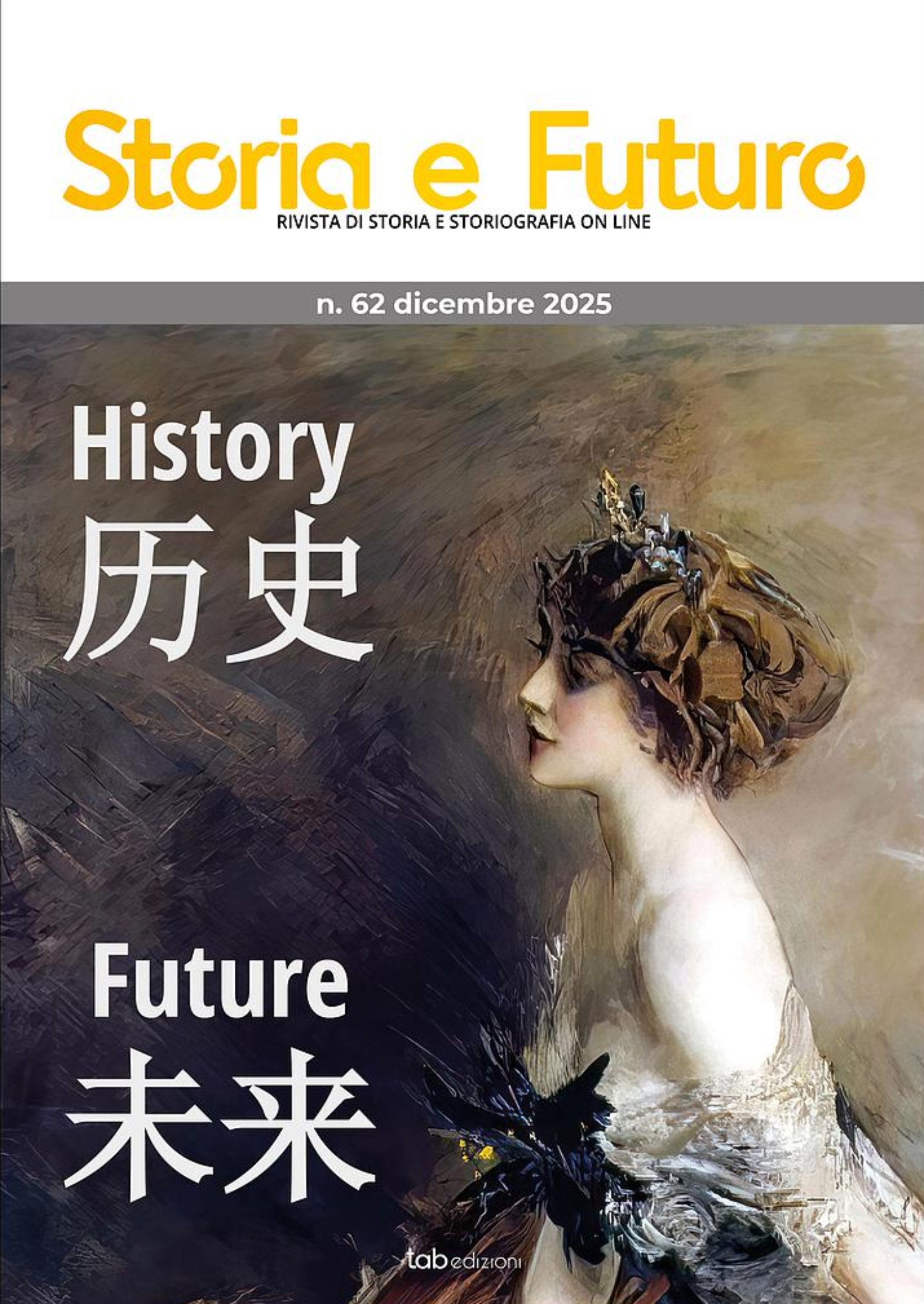Open Access

Numero 62 dicembre 2025
Download full volume PDF- Alessio Soma commenta Paolo Giovannini, Il fascio e il campanile. Problemi di storia del fascismo provinciale marchigiano, Ancona, affinità elettive, 2024
- Migración y paridad diplomática. Las “puertas abiertas” mexicanas y el primer tratado con la China (1899)
- Il cinema di fantascienza negli anni Cinquanta
- I prefetti e la Livorno postunitaria tra proteste e velleità rivoluzionarie
- Rosanna Carrieri commenta Lucia Miodini, Aurora Savelli (cur.), Altri sguardi, altri spazi. Percorsi di Gender Public History, Milano, Mimesis, 2025
- La conservazione del mondo videoludico, una sfida archivistica
- Maria Elena D’Amelio commenta Alberto Malfitano, Alessandro Blasetti. I film, le carte, il suo mondo, Bologna, Edizioni Cineteca di Bologna, 2025
- Fernanda Wittgens. Arte e impegno civile
- Musica, fumetti, romanzi: raccontare i giovani italiani tra anni Settanta e Ottanta
- “Si può dire che la lotta di produrre sia ora lotta di sapere”: Milano 1881, nasce la prima esposizione industriale italiana
- Andrea Girometti commenta Massimo Gabella, La Rivoluzione come problema pedagogico. Politica e educazione nel marxismo di Antonio Labriola (1890-1904), Bologna, il Mulino, 2022
- Il socialismo liberale nell’itinerario teorico e politico di Norberto Bobbio


